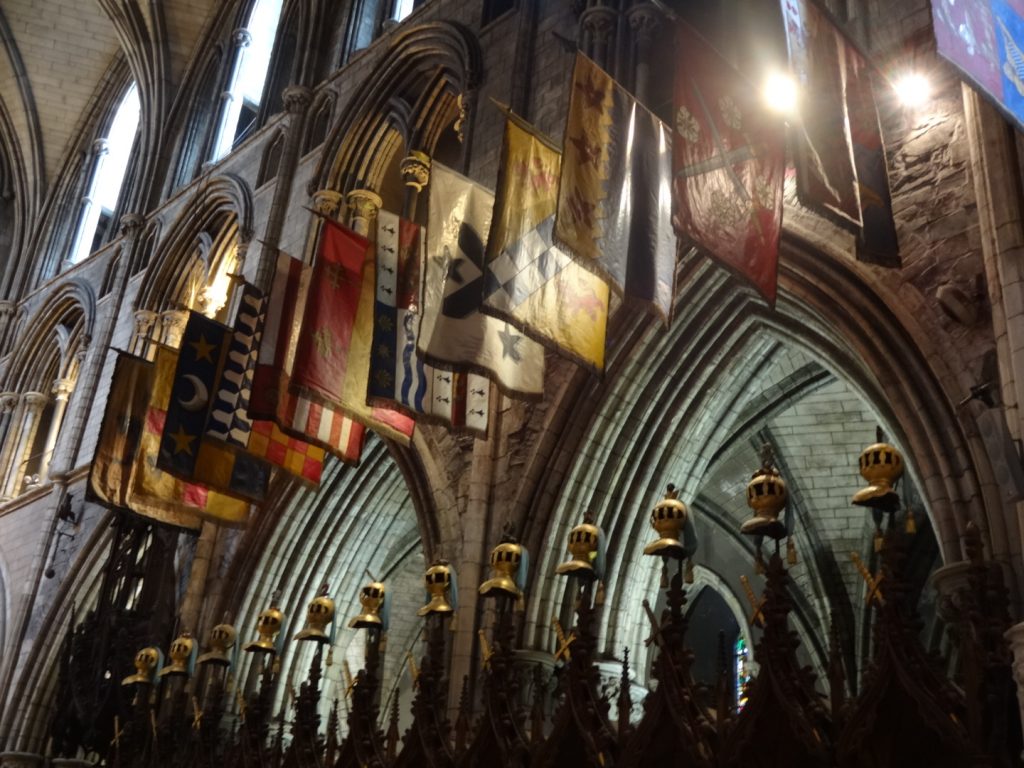
What to see in Dublin – Ireland’s biggest City?
We start almost all of our Thin Places mystical tours in Dublin because that’s where the airport is located. But how to choose what to see in Dublin? But being a bustling international City, Dublin doesn’t seem like a place one would find sites of high energy vibration or a sense of walking in two worlds. But since almost all international tourists enter the country through this city it’s worthwhile to mention some sites worth seeing.
Certainly among those would be the two Cathedrals south of the River Liffey – Christ Church Cathedral and St. Patrick’s Cathedral.
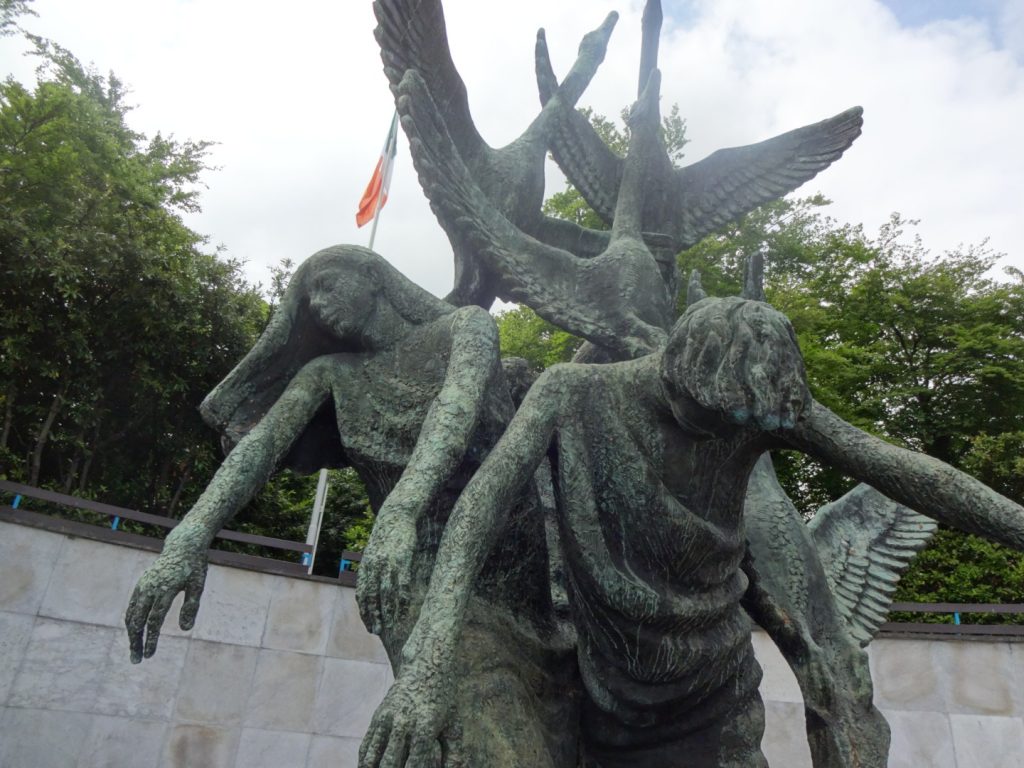
There are many thin places in Dublin. Ancient Holy Wells of Dublin by Gary Branigan proves that holy sites are in your midst even on the busiest of streets, and Gary has identified about a half dozen right in the City Centre. Most thin places I’ve sensed in Dublin are closely related to the arts. If being in a thin place inspires artists to create and draw on other-worldly energy, then that thin-place energy that inspired them lives in the art. The art itself radiates the energy and connects with those who take the time to let it soak in. One need only to visit the Famine Memorial along the Quay or the Garden of Remembrance in Parnell Square to connect with such energy. Both are within a mile of each other in the City Centre.
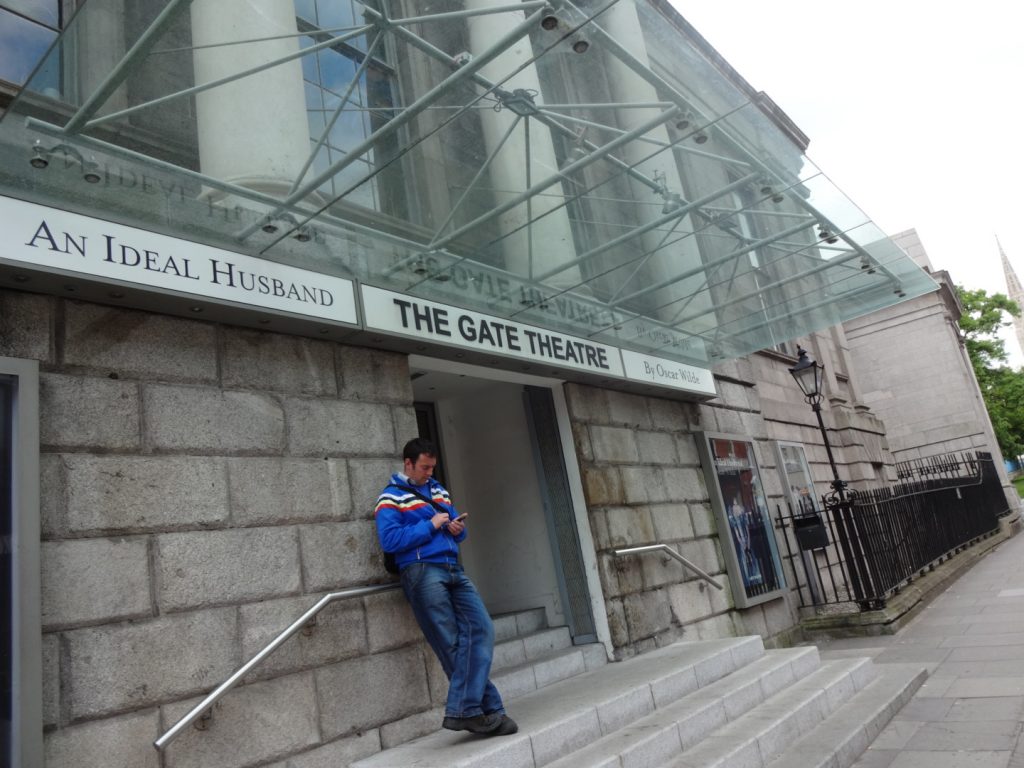
But a sweet cluster of thin places are scattered around Parnell Square, named for Charles Stewart Parnell. On the south / east corner where O’Connell Street links with the square are some interesting Georgian houses, with the Gate Theater, anchoring the corner. Actors like Michael Gambon, James Mason and Orson Wells go their start at the Gate. It’s known for its productions of works by Irish playwrights including Samuel Beckett and Oscar Wilde.
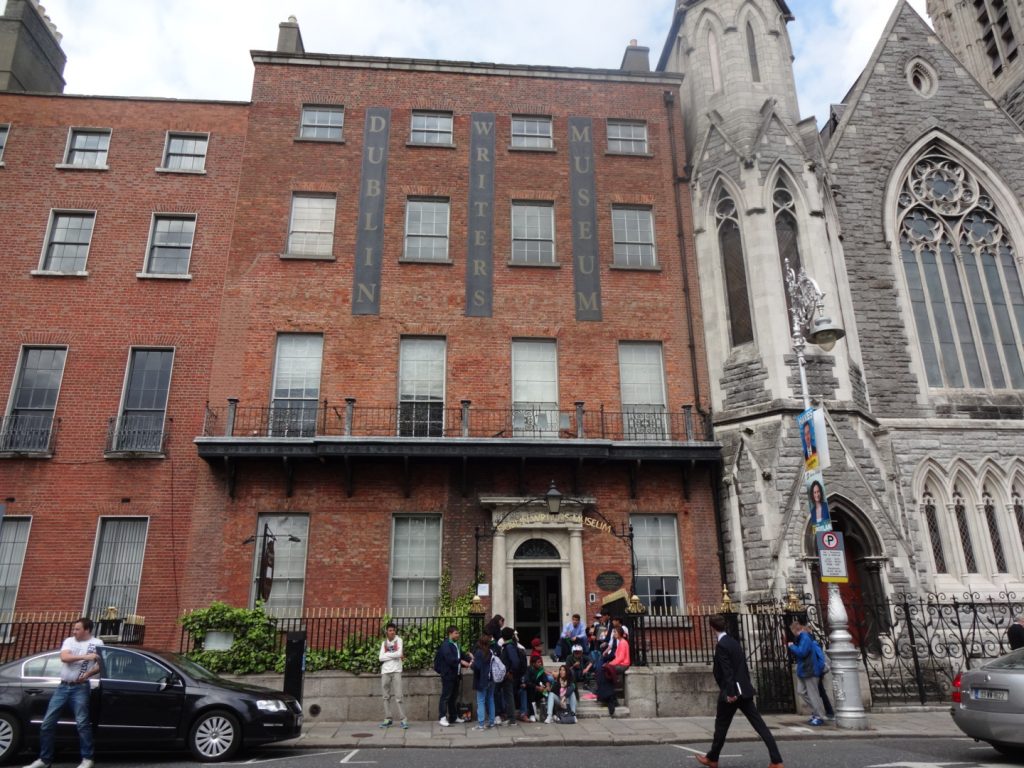
Just up from the Gate Theater is the Garden of Remembrance, one of the most inspiring sites in all of Ireland. Across from the Garden of Remembrance on the north side is the Dublin Writers Musuem. It’s an excellent tribute to Ireland’s literary greats from Johnathan Swift to Brendan Behan. There’s numerous letters, books, and artifacts from some of the greatest writers in literary history such as like William Butler Yeats, George Bernard Shaw, Sean O’Casey, Oscar Wilde, Samuel Beckett and James Joyce. Some interesting personal items include Brendan Behan’s union card and typewriter, letters written by W.B. Yeats and a first edition of Bram Stoker’s Dracula. There are dozens of personal items carefully preserved and displayed.
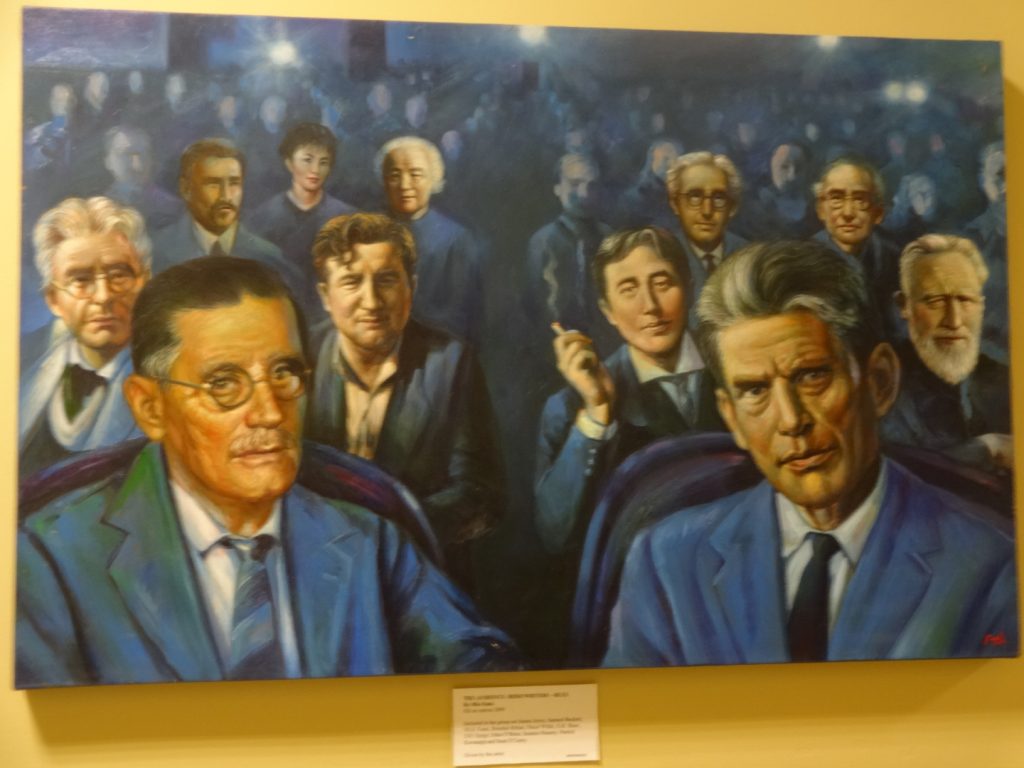
The Hugh Lane Gallery is also on the north side of the square, was the first public gallery of modern art in the world. It houses a great collection of Francis Bacon’s work. When Bacon’s heirs donated the entire contents of his studio in England to the gallery, careful attention was paid to recreate the studio in the Lane Gallery to closely resemble the original studio.
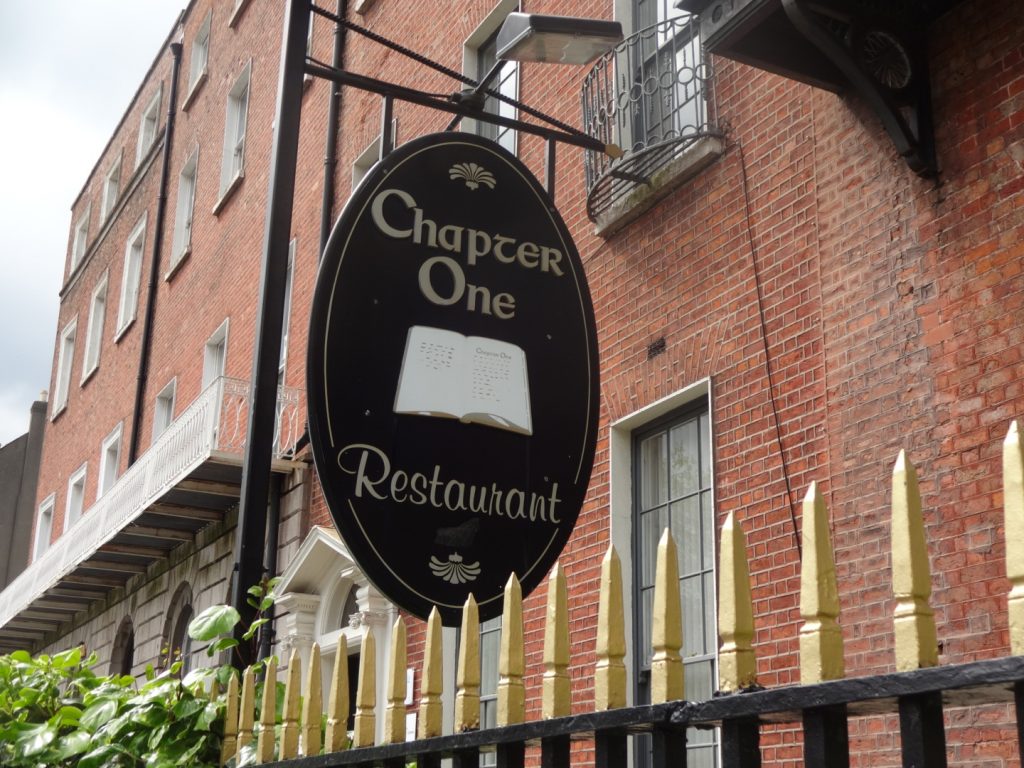
Chapter One Restaurant situated between the Irish Writers Museum and the Hugh Lane Gallery is one of ten Michelin star restaurants in all of Ireland (2013), a mark of excellence in cuisine and service. The owners take pride in using local artisans and food producers. They believe that drawing on local talent in the way of food growing and producing is what sets them apart from other dining venues and creates opportunities for growth.
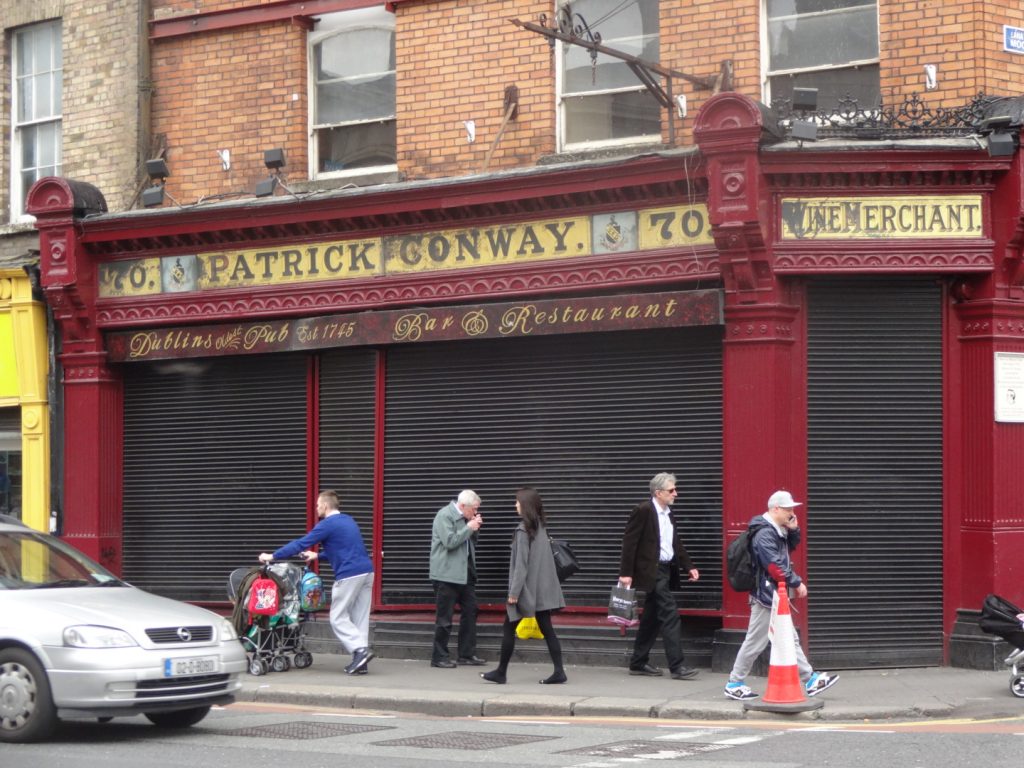
On the south side is the now shuttered Patrick Conway’s Pub, the oldest pub on Dublin’s north side. This is where Pádraic Pearse surrendered to the British after the Easter Rising failed in 1916 – which is so noted by a plaque on the outside wall. And as if echoing that association with Irish patriots, the Sinn Fein Dublin office and shop is catty corner to Conway’s pub.
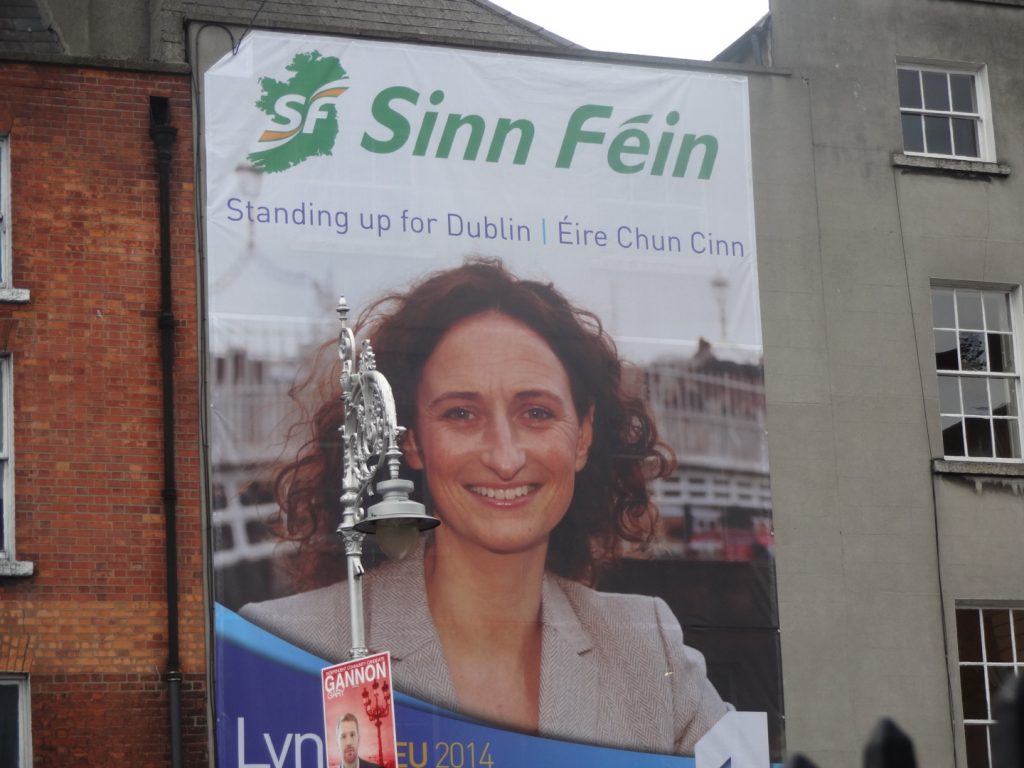
Dublin is full of art, from the statues of Irish heroes on O’Connell Street to the Cathedrals (St. Patrick’s and Christ Church) to the roadside devotional statues to saints, the Blessed Virgin and Jesus. There’s much to enjoy about the city that connects with the desire for thin places.

Can’t wait to see what’s coming for 2015!!